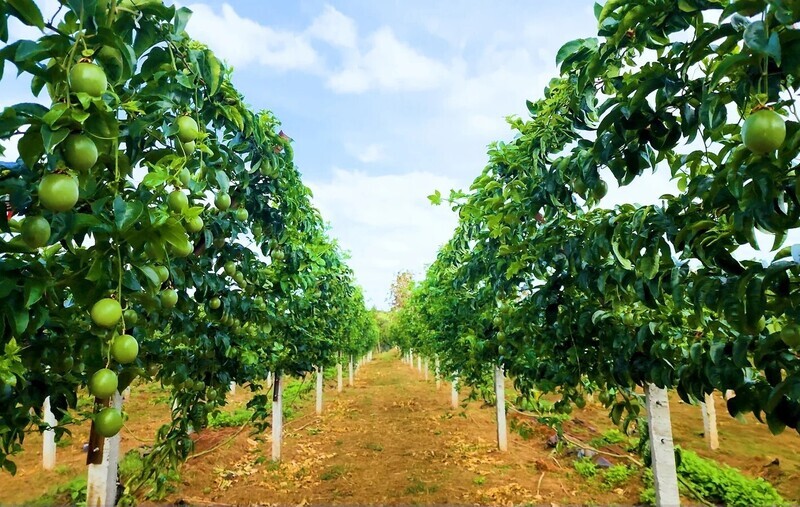
Vietnam’s fruit and vegetable exports to EU triple in four years
19:05 | 23/03/2025 20:40 | 23/02/2026Trade
Shan Tuyet tea – From wild plants to treasure
On mountain peaks more than 1,500 meters above sea level, among fields of razor-sharp limestone, the ancient Shan Tuyet tea trees in Tua Chua have grown, rooting themselves into the barren earth. Untended and uncultivated, the tea trees befriended the wind, bonded with the mist, and flourished against adversity to gift the world their delicate bitterness and the earthy fragrance of heaven and earth.
For centuries, the Hmong people in villages such as Ta Sin Thang, Sin Chai, Lao Xa Phinh, and Ta Phin have regarded these tea trees as sacred treasures bestowed by nature. In their memory, tea is not merely a beverage that wards off the cold, but a cherished heirloom, a sacred symbol of the mountains and forests.
Yet for countless years, this ‘green gold’ lived quietly alongside the people, became little known and even less valued. Fresh tea leaves were sold for a pittance to traders, drifting aimlessly through the harsh currents of the black market. Despite their care and devotion to the tea, the local people lived in persistent poverty.
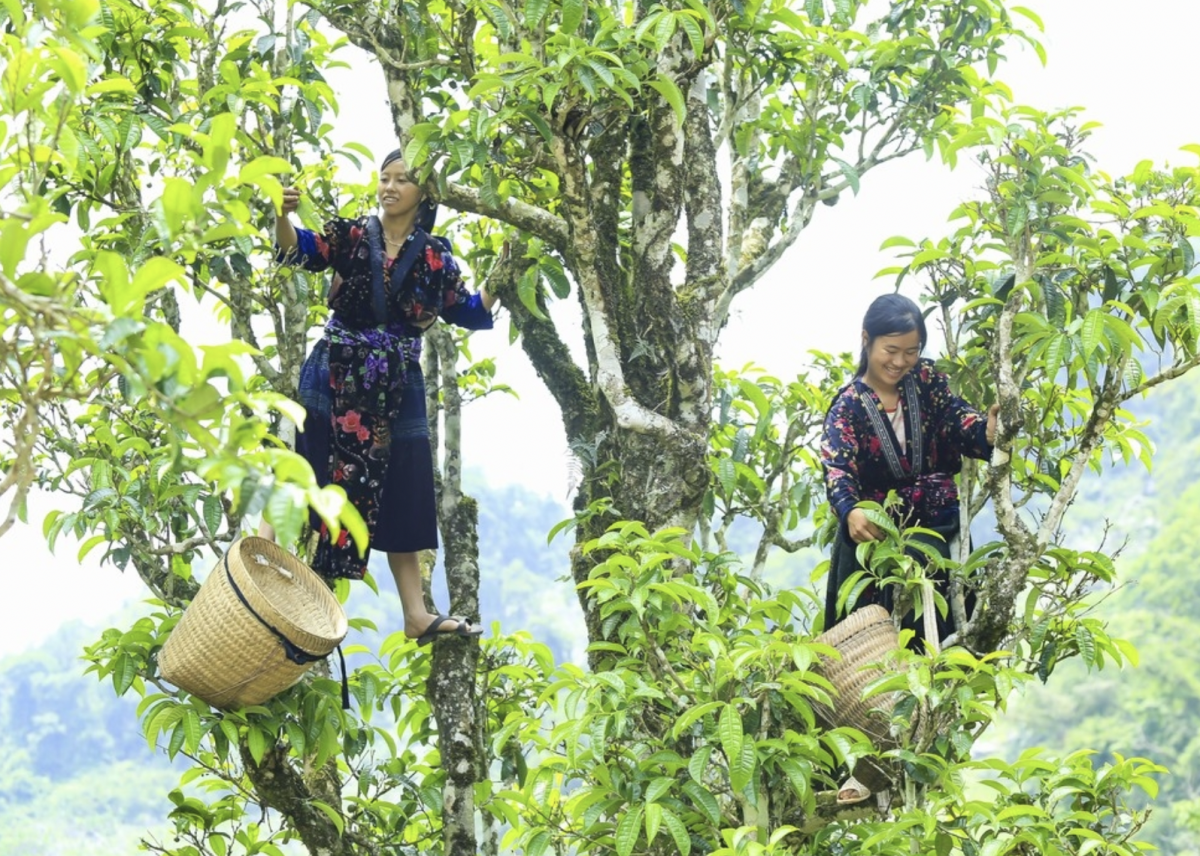 |
| For centuries, the Hmong people in villages such as Ta Sin Thang, Sin Chai, Lao Xa Phinh, and Ta Phin have regarded these tea trees as sacred treasures bestowed by nature. (Photo: Quang Khiem) |
It was not until sustainable agriculture development programs reached these remote highlands that a new wind stirred the ancient tea gardens. Tea cooperatives began to form, organized by the locals themselves. They learned to link production, processing, and packaging; to participate in trade fairs; to engage in e-commerce; and to pursue geographical indication for Tua Chua’s Shan Tuyet tea.
No longer relegated to selling cheap, raw tea buds, the ethnic minorities have become the true proprietors of their products, setting prices, building brands, and choosing their markets.
Giang Thi Dua, a member of the Sin Chai Tea Cooperative, proudly shared: “Now, we sell tea processed by ourselves, branded with our village’s name, and with clear traceability. Customers order our tea online, and some even come from abroad to visit our village.” Her voice resonates with pride and the light of hope, a light that only those who have endured hardship can fully appreciate.
Today, Tua Chua District boasts around 700 hectares of tea cultivation, including nearly 400 hectares of ancient Shan Tuyet tea. Fresh tea bud production exceeds 1,000 tonnes annually. While fresh tea at the garden fetches VND20,000-30,000 per kilogram, processed tea products can sell for VND200,000-500,000 per kilogram, depending on quality and market. Many households now earn VND50-80 million annually from tea, which was once a distant dream in this rugged land.
The ethnic communities in Tua Chua are now taking even greater strides. They no longer sell tea merely as a commodity, but weave their own story into the product: A tale of stone, wind, toil, and an unbreakable bond with nature.
Each package of Shan Tuyet tea now contains not just tender tea buds, but the thousand-year memories of Tua Chua’s mountains and forests, and the resilient aspirations of the Hmong people.
From harvesting tea at the right season to naturally drying and meticulously packaging with clear origin labeling, every step is performed with care and love. Many cooperatives have even invested in modern machinery and processing facilities that meet food safety standards, further enhancing the value of their agricultural products.
Looking ahead, Tua Chua District is integrating tea cultivation with community-based tourism. Emerging tourism initiatives invite visitors to explore ancient tea gardens, experience tea picking with the Hmong people, and savor Shan Tuyet tea amidst the primeval forests. In the near future, tea gardens are expected to become a new highlight on the eco-tourism map of Vietnam’s northwestern region.
Ethnic communities taking ownership of ‘green gold’
Despite these positive signs, the road to true ownership of agricultural production for Tua Chua’s ethnic minorities remains fraught with challenges. Transportation infrastructure is still weak, with muddy, difficult roads to many tea villages during the rainy season. Deep processing technology remains inconsistent, and there is a lack of large-scale investment enterprises. The consumer market is still narrow, relying mostly on domestic retail and yet to expand internationally.
Moreover, fragmented and small-scale production habits, with weak linkages among households, remain significant obstacles.
Chu Thi Thanh Xuan, Deputy Director of the Department of Agriculture and Environment of Dien Bien Province, said, “We have precious raw materials, but we have yet to fully realize their high added value. To elevate Tua Chua’s Shan Tuyet tea, we need comprehensive investment, from varieties and processing technologies to market development and brand building.”
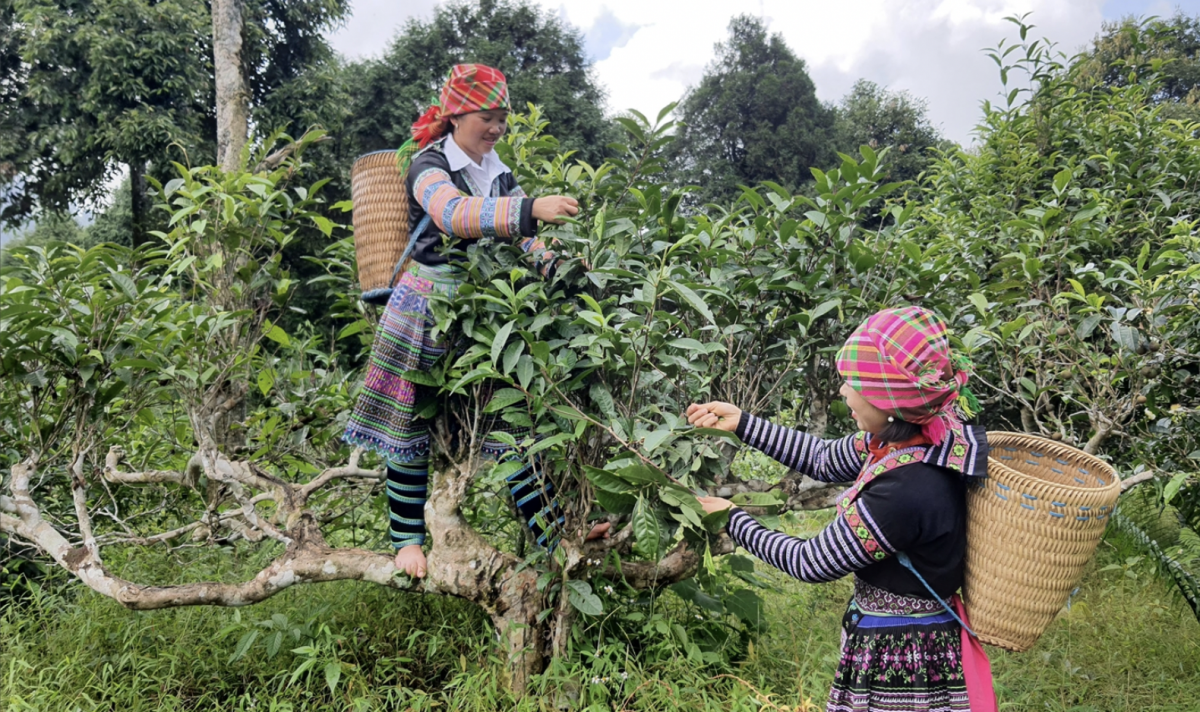 |
| Tua Chua District is strongly promoting the integration of tea cultivation with community-based tourism. (Photo: Hoang Khanh) |
Accordingly, Dien Bien Province and Tua Chua District are vigorously implementing multiple solutions. They are promoting the linkage of Shan Tuyet tea with eco-tourism and community-based cultural tourism. Ta Sin Thang and Sin Chai are envisioned not only as tea-growing areas, but also as attractive destinations for nature lovers eager to experience Hmong culture and sip tea amidst ancient forests. ‘Tea tourism’ represents a promising new direction for the region’s ‘green gold.’
Most importantly, it is essential to ignite a strong spirit of self-reliance and ownership among the local people, a spirit that is beginning to awaken but still requires persistent nurturing.
No one understands the land and preserves its treasures better than the locals. Only the people of Tua Chua, with their unconditional love for the mountains and forests, possess the patience and resilience needed to protect and develop their homeland’s ‘green gold.’
Tua Chua is changing day by day. Verdant Shan Tuyet tea hills now stretch across the mountainsides, interspersed with newly built houses and classrooms filled with children’s laughter. It all stems from something both simple and profound: the people have taken hold of their own destiny.
The journey to bring ‘green gold’ further into the world still holds many challenges, but a flame of confidence now burns brightly in the hearts of Tua Chua’s people, a flame forged from stone, tea, labor, and dreams that refuse to slumber beneath the rocky soil.
With their hands and spirit, the ethnic minorities in Tua Chua are making a resounding declaration to Vietnam’s northwestern region and the world: “We are not just producing agricultural products. We are shaping our future.” |

19:05 | 23/03/2025 20:40 | 23/02/2026Trade
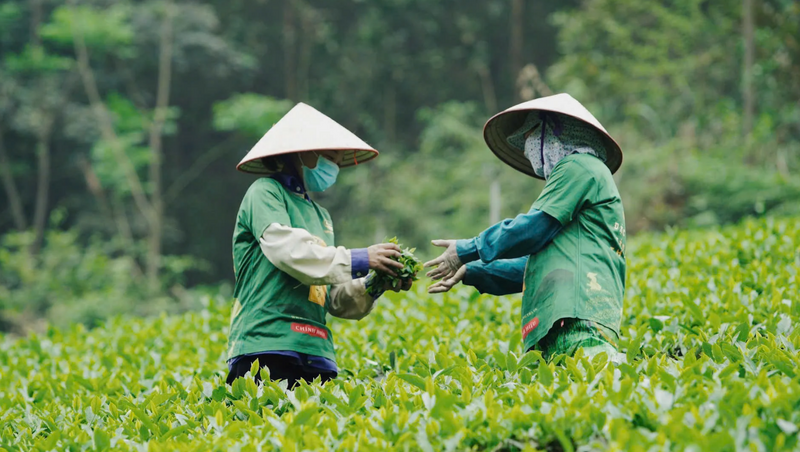
19:05 | 23/03/2025 20:38 | 23/02/2026Trade

19:05 | 23/03/2025 20:30 | 23/02/2026News and Events
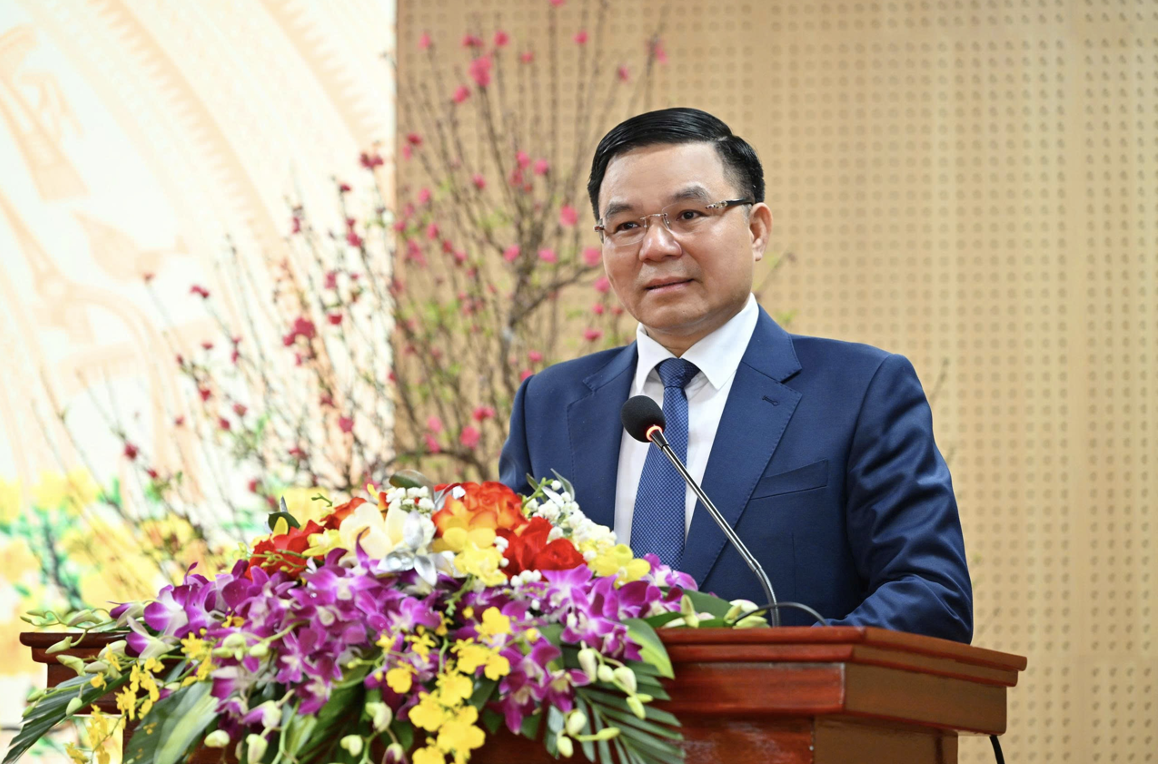
19:05 | 23/03/2025 20:29 | 23/02/2026News and Events

19:05 | 23/03/2025 20:14 | 22/02/2026News and Events